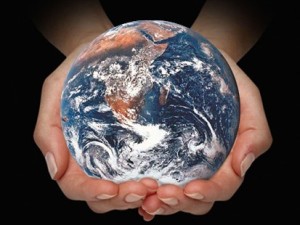“What we seek in visible human form is not man, but the superman, the hero or god, that quasi-human being who symbolizes the ideas, forms, and forces which grip and mould the soul.”
C.G. Jung (CW 5, par. 259)
“The archetype of the redeemer-god … is age-old – we simply do not know how old.”
C.G. Jung (CW 11, par. 202)
Summer is upon us and once again the superhero has returned to movie theaters. Let me begin by stating that I enjoy watching the occasional superhero film for it can simultaneously entertain and enlighten us. In my youth, I was an avid reader and collector of comic books with a special fondness for The Fantastic Four (was this the beginning of my becoming a Jungian?).
From a psychological perspective, even the most cursory consideration of these films reveals the age-old archetype of the hero, including motifs of the wound, redemption and the granting of a gift providing power for the good of humanity. The superhero story also always possesses an opponent of near equal strength (but of course not equal or greater strength than our hero) to add tension to the narrative. For how interesting would the story be without the possibility of the hero’s demise?
It has been noted that the comic book hero Superman first appeared around the time of the Great Depression. His original form, as a very strong man fighting for the underdog, helped people during this time to cope with their feelings of disempowerment. Psychologically, people projected their inner hero onto this comic book hero thus imaginatively allowing them to experience exploits of empowered justice. Also, the portrayal of a simple division between good and evil helped people deal with the ambiguity and complexity of their lived-world. As Jung notes, the archetype of the redeemer-hero has been with us for a long time. Each age, each culture creates its own nuanced form of the archetypal hero story.
What I find most interesting is the current superabundance of these films (see a recent article on the implications of this for film in general). To be sure, Superman has been with us for many years on both television and film screens. But recently it seems the door to the hallowed hall of the superheroes has been thrust open allowing a veritable stampede of heroes to enter our everyday world. Consider the appearances of Superman, Batman, the Hulk, Spiderman, Iron Man, Captain America, Thor, X-Men and the Avengers, to name but a few! Truly the world is in safe hands with such an abundance of hero-redeemers. Consider also that these superheroes return each blockbuster summer season, nicely synchronized with the appearance of the summer solstice… perhaps, this is no coincidence given that the original hero myths were tied to the Sun’s (Son’s!) rebirth each year.
Apparently, we are in dire need of the redeemer-hero given the large number of people attending these films. The hero eternally returns – most recently in form fitting tights and modern metallic armor (remember the archetype is universal, but its particular form adapts to the times). Today we find our superheroes as projected images on film screens, which is certainly deeply ironic for depth psychologists. A positive aspect to these projections is that they allow us to gaze into the unconscious. Analytic gazing opens us to a path back into ourselves. Perhaps, by questioning why we are so fascinated with our many superheroes we may ultimately find the hero within ourselves.

